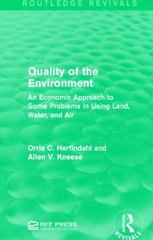I. OBJECTIVE The objective of this project is to construct a portfolio for Mr. Donothing. He hires you to manage his money. You will do this assignment in a team of two. II. INVESTOR PROFILE Mr. Donothing is a real person. He is 50 years old and single. He does not work. He survives based on an inheritance of $10 million. He is an amphibious person: he spends his time on cruise ships. Assume he needs $500 per day throughout the year for cabin charges and food (when he is on land between cruise ship trips, he lives in hotels). He needs another about $25,000 per year for part-time secretarial services and incidental expenses. He wants to settle in Pompano Beach, Florida at 55, get married and have a child. The type of the house he wants to buy sells today for $500,000. His cash needs would remain more or less unchanged after he settles on land. In investing his money, consider necessities of life, precautionary needs, need for lump-sum expenditure in the future, retirement needs and insurance needs. After investing appropriate sums to meet some of these needs, if there is money left over, you can consider active investing: try to beat the market. Two approaches to beating the market are: asset allocation (market timing) and identifying mispriced securities. III. POLICY STATEMENT The first step will be to construct a policy statement. This will specify the type of risk you are willing to take, and the investment goal(s) and constraints. This statement is periodically updated as investor needs change. The statement helps the investor decide on realistic but challenging investment goals after learning about the prospects of the markets and the risks. It also creates the standard by which the performance of the portfolio is judged. A policy statement should incorporate the investor's objectives (risk and return) and constraints (liquidity, time horizon, tax factors, legal and regulatory constraints, and unique needs and preferences). Chapter 2 goes over the inputs to the policy statement. IV. CONCEPTUAL NOTES: ASSET ALLOCATION ISSUES One approach used in trying to outperform the market is asset allocation: identifying how much to invest in stocks, bonds, cash, real estate, precious metals, international assets, etc. After you have assessed the proportion you should invest in stocks, bonds, cash, etc., you might delve into the issue of security selection: selecting individual securities in each asset category (stocks, bonds, cash, etc.). A- Economic Analyst The starting point for asset allocation is economic analysis. Based on short-run and long-run forecasts made by economists, try to make some assessment about short-run and long-run direction of the economy. Economists look at a host of macro-economic variables to help us in assessing the direction of the economy. The more important ones are: ' Money supply and interest rates (which determine easy of credit availability); ' Retail sales, unemployment rate, personal income, personal consumption, new-car sales, consumer credit (these and other variables help to assess consumer spending); ' Budget deficit (which reects government spending); ' Merchandise trade deficit (which reects relative strength of exports compared to imports)







